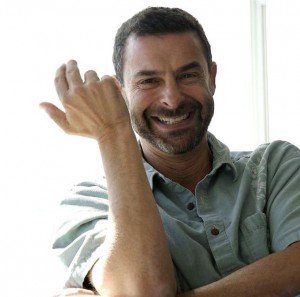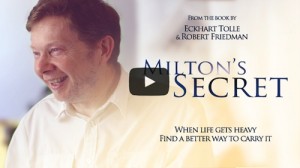
I was talking the other day with Barnet Bain, the producer of the 1998 movie What Dreams May Come, starring Robin Williams. Barnet is working on a new movie now, which I will tell you all about a little later.
Most of the people who read my weekly offerings, just like you, care deeply about the world. Perhaps you have a sense of our evolutionary potential, or the needless suffering in our world that could be so easily overcome by a collective shift in how we experience reality? What is the best way to bring about such a shift? Religion? Better elected leaders? Social and political action? Or simply great movies?
Barnet and I were discussing what makes a movie "transformational" in this way, or even "spiritual." We swapped examples of films which really hit the mark. "In one way," says Barnet, "all movies are spiritual. I believe that nothing unspiritual exists. There is no such thing as a story that is not a window into our personal and collective mythology. And to the degree that we understand that, we can begin to retrain all of our stories."
But I argued with my Hollywood buddy, because there are certain movies, like The Matrix or Inception for example, which develop a cult following precisely because they transform and awaken us as they entertain us. And then there are plenty of other movies that follow a formulaic pattern of good guys chase bad guys and win, that just don't go as deep.
Barnet has spent his whole life in the movie industry, and so he has learned a thing or two. The greatest problem, he told me, is that films that set out to be spiritual from the outset easily get caught up in preaching a particular philosophical perspective. Whenever we, as an audience, sense that the filmmaker is trying to transform us or awaken us, the film immediately has a limited audience, restricted in fact to those who were already zealous anyway. Such films end up preaching to the choir.
So here was the essence of what Barnet had to say about what makes a transformational film work. I recorded him and transcribed it, as I was so interested in his highly informed perspective:
Transformational entertainment models a particular response to life. There are plenty of films in which a hero meets extraordinary challenges, and encounters these challenges in such a way that he or she prevails. He gets the girl, she marries the guy, gets the job, vanquishes the enemy, whatever it is. In these movies we have a very effective formula that is very familiar to us. In transformation movies, the hero (or the shero) meets the same challenges, but the circumstances may or may not change. In a transformational movie, it is the internal world of the (s)hero that goes through transition.
Such films cause us to reassess, with total responsibility, our internal assumptions about life. The (s)hero honors him/herself and others by making real change as a response to the challenges of life, as opposed to bulldozing reality in order to try and dominate it in such a way that it conforms to his or her will.
The characters change their thoughts, and choices, and assumptions about life and are willing to be different as a response to challenge. As a result their life circumstances may or may not change, but they change.

Barnet is currently collaborating with Eckhart Tolle for his most ambitious and creative project ever. I'm going to let him tell you about it himself:
I'm making a film called Milton's Secret based on the novel by Eckhart Tolle and Robert Friedman, starring Peter Fonda. It is a story about a young boy who is very stressed, his parents are having financial problems, their marriage is in trouble, he lives in a subdivision where every second or third house is underwater, there are homeless people in his community. There is violence and stress in the world, he is bullied at school, and spends much of his time in anxiety about the future or ruminating about the past, and very little in the present moment. The redemption in this movie is not about changing the world outside you, but finding meaning and connection in this moment, just as it is.
You can, if you like, help to fund the movie like I have, and in the process you get a DVD mailed to you when it is done, as well as the script.
Barnet and I exchanged our "most transformational films" list, and we will both be back with you soon, in a few weeks, to explain exactly why we chose these titles, and why watching them may be more transformational than meditation, yoga or psychotherapy, or all three together.
Arjuna's top 10 transformational films
1. American Beauty
2. Life is Beautiful
3. A Beautiful Mind
4. Eternal Sunshine of the Spotless Mind
5. Adaptation
6. Crouching Tiger, Hidden Dragon
7. The Matrix
8. The Cloud Atlas
9. Kama Sutra
10. Inception
Barnet's list:
1. Groundhog Day
2. 2001 A space oddessy
3. The Matrix
4. The Godfather
5. Hamlet
6. Midsummers Night Dream
7. Raging Bull
8. Apocalypse Now
9. The Dark Knight Returns
10. Skywalker
We would love you to add your favorite "transformational films" in the comments area below.
